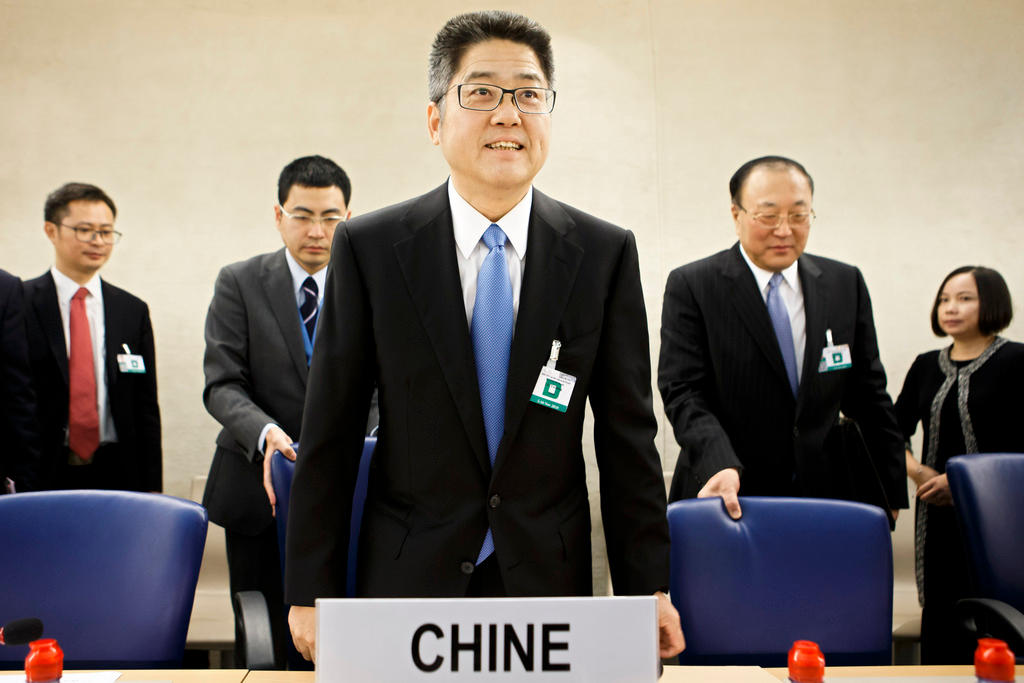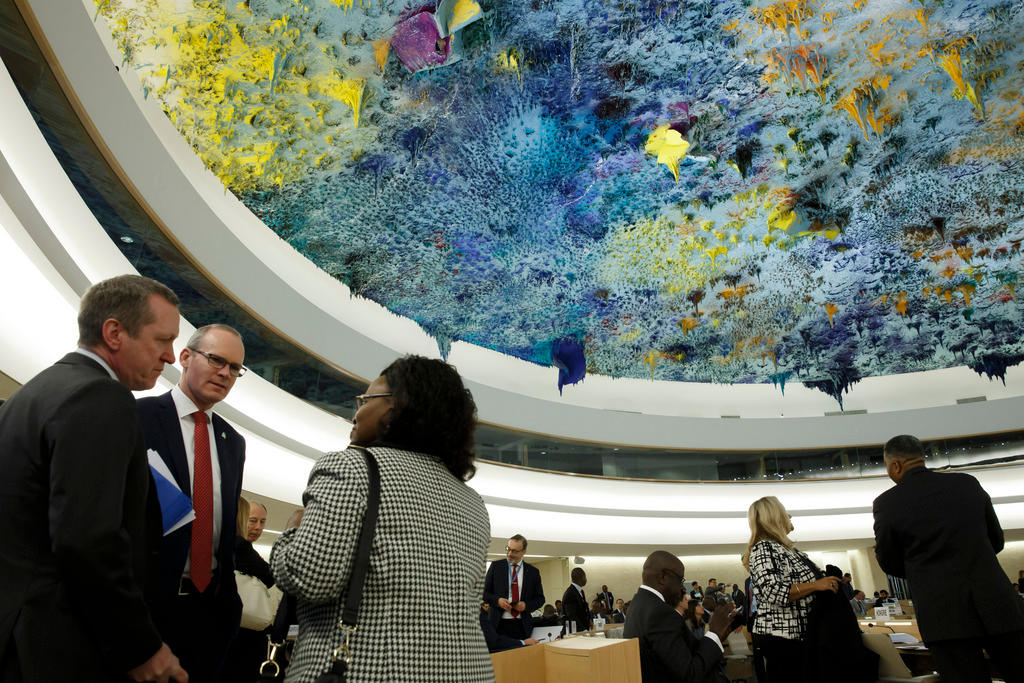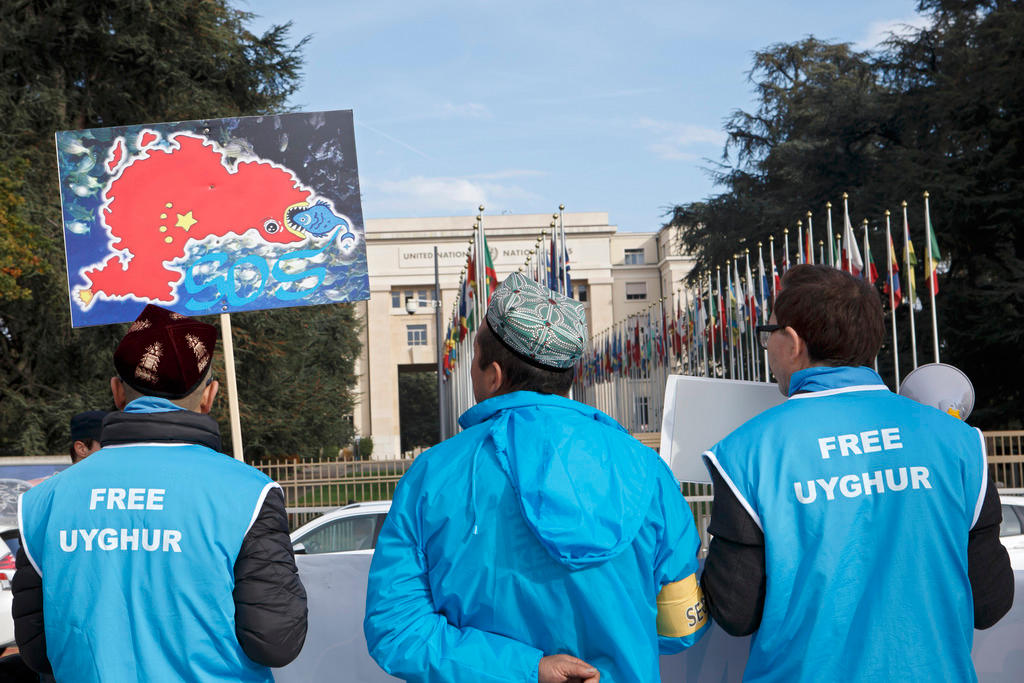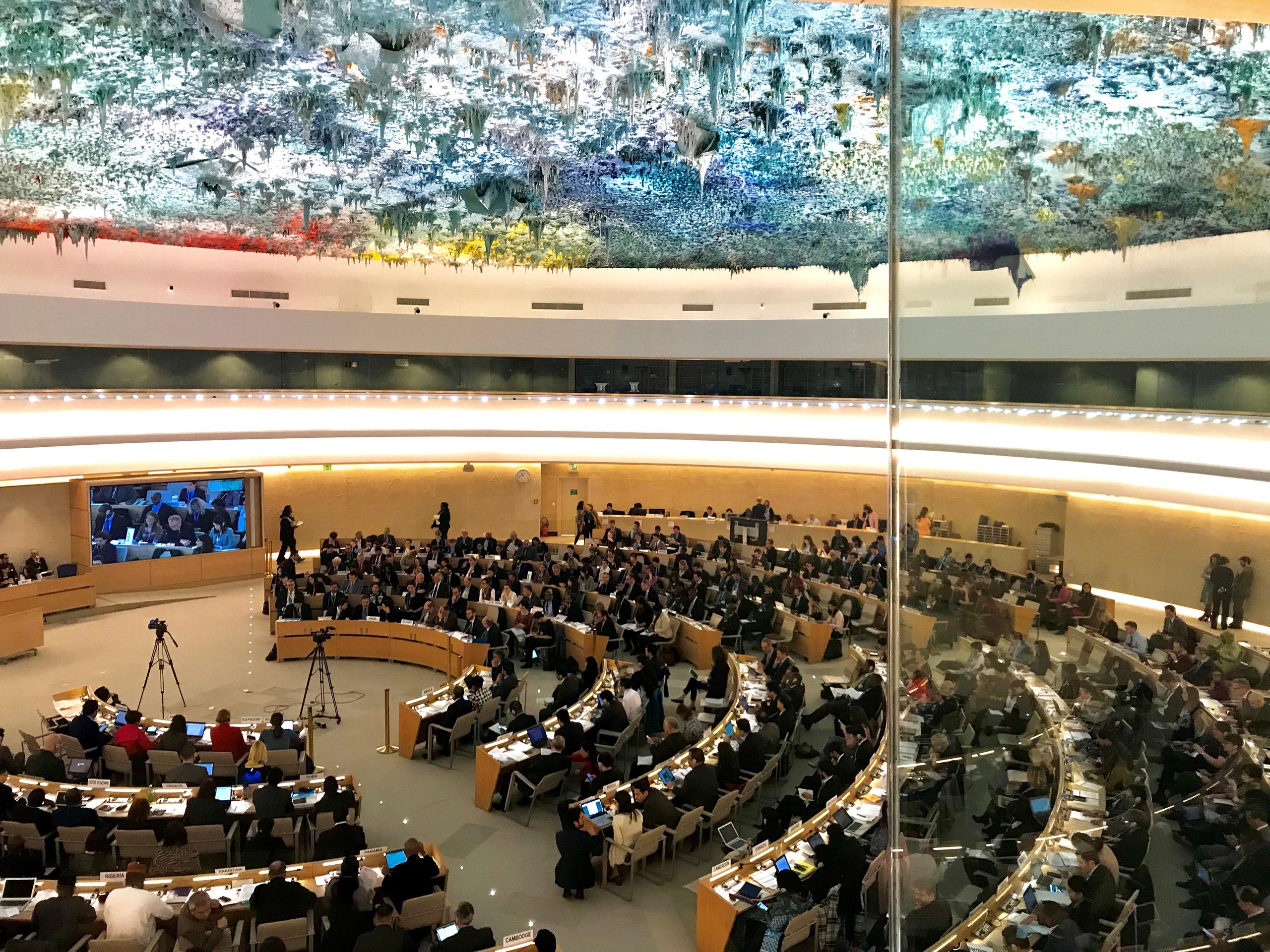China steps up diplomatic efforts in Geneva to deflect censure

China and its alleged mistreatment of Uighurs and other Muslims in the Xinjiang region was at the centre of the month-long United Nations Human Rights Council session that ended on Friday.
In Geneva, Beijing’s call last year for a “constructive and mutually beneficial” cooperative approach to the council has evolved into its robust defence of external criticism.
“I have been following the work of the UN human rights bodies since 1980 and I have never seen at the Palais des Nations such a strike force deployed by a state to stifle criticism,” Adrien Claude Zoller, director of the Geneva for Human RightsExternal link non-governmental organisation, told swissinfo.ch.
Chinese government officials arrived in Geneva for the 40th session of the UN Human Rights CouncilExternal link to face growing international condemnation of what UN experts describe as detention centres holding more than one million Uighurs and other Muslims in Xinjiang region. China calls them “vocational training centres” for Muslims and has rejected interference in domestic affairs.
On the defensive
In Geneva it stepped up efforts to resist criticism. This involved mobilizing friendly states, pressuring foreign diplomats not to participate in meetings criticising human rights violations in China, pro-Chinese interventions by certain NGOs and an exhibition on the development of human rights in Xinjiang organized by the Chinese diplomatic mission in Geneva and the China Society for Human Rights Studies. External link
John FisherExternal link, the Geneva representative of Human Rights Watch, echoed Zoller’s words: “I have never seen such strong pressure and intimidation on diplomats and NGOs from a government at the human rights council.”
In 2017, Human Rights Watch documented and denouncedExternal link a similar strategy by the Chinese in the council.
Zoller says China appears to have overreacted to the criticism in Geneva and has undermined its credibility. He claims the Chinese delegation’s restlessness was probably linked to fears of a resolution being tabled at the human rights council to establish a commission of inquiry into alleged human rights violations in Xinjiang. This had been called for by a broad coalition of NGOs before the March council session.
Last week, Chinese officials were forced to comment on their human rights record. This followed China’s acceptance of recommendations made for their third Universal Periodic Review (UPR)External link – a UN human rights report card.
“Campuses…. not concentration camps”
Chinese vice foreign minister Le Yucheng defended what China calls its vocational training centres in Xinjiang for Muslims and said its “campuses” would be closed gradually as extremist ideology is vanquished in the region. Le told reporters: “They will not be there forever, the purpose is to get rid of extremist ideology in Xinjiang.”
They are “not a concentration camp”, but rather “campuses”, he said, adding he had visited three Xinjiang centres last month which offer dormitories, a library and family visits.
Le rejected as interference UPR recommendations from delegations concerning Xinjiang, but accepted those regarding the need to uphold religious freedom, free speech, and internet freedom.
UN human rights chief Michelle Bachelet is meanwhile seeking access to China to verify continuing reports of disappearances and arbitrary detentions, particularly of Muslims in Xinjiang.
Rejecting these allegations, the Chinese delegation invited “anyone who wishes to visit Xinjiang to do so, provided they are honest and respect China’s sovereignty”.
#SwitzerlandExternal link concerned over #HumanRightsExternal link situations in #VenezuelaExternal link (arrests during #protestsExternal link), #ChinaExternal link (so called “re-education camps” in #XinjiangExternal link), #TurkmenistanExternal link (#enforcedExternal link disappearances) and #SudanExternal link (arrests of #protestersExternal link). Full statement: https://t.co/4nhUUFhpTFExternal link #HRC40External link pic.twitter.com/vWCVlKxXa0External link
— SwitzerlandUN (@swiss_un) March 12, 2019External link
Switzerland said it welcomed “China’s readiness to partially open access to rehabilitation centres in Xinjiang for certain diplomats and journalists. China should also grant unhindered access to the High Commissioner and the special procedures to conduct an independent investigation”.
In the end, no resolution was tabled against China and Xinjiang during the 40th session. On behalf of the Organisation of Islamic Cooperation, Pakistan even praised China for its care of Muslim citizens.
Translated from French by Simon Bradley

In compliance with the JTI standards
More: SWI swissinfo.ch certified by the Journalism Trust Initiative




You can find an overview of ongoing debates with our journalists here. Please join us!
If you want to start a conversation about a topic raised in this article or want to report factual errors, email us at english@swissinfo.ch.